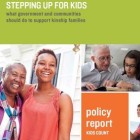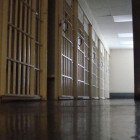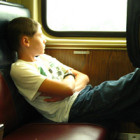
A new report finds that more American children are living under kinship care with relatives or family friends instead of their parents, than a decade ago. The report, published by Annie E. Casey Foundation’s KIDS COUNT project , entitled "Stepping Up for Kids: What Government and Communities Should Do to Support Kinship Families", found that approximately 2.7 million children are currently living with people other than their parents, an arrangement also known as kinship care. The report also found that about 9 percent of the nation’s youth will live under care of an extended family member for at least three months at some point in their childhood. The authors of the report claim that kinship care needs to be addressed by both community and government programs, as many times family members or friends that assume parental responsibilities are hampered by limited income and the legal inability to obtain basic medical services or authorize medical consent for the children in their care. According to the report, kinship care guardians are very likely to be poor, single, older, less educated and/or unemployed and are often unfamiliar with federal assistance programs, such as Temporary Assistance for Needy Families (TANF).









